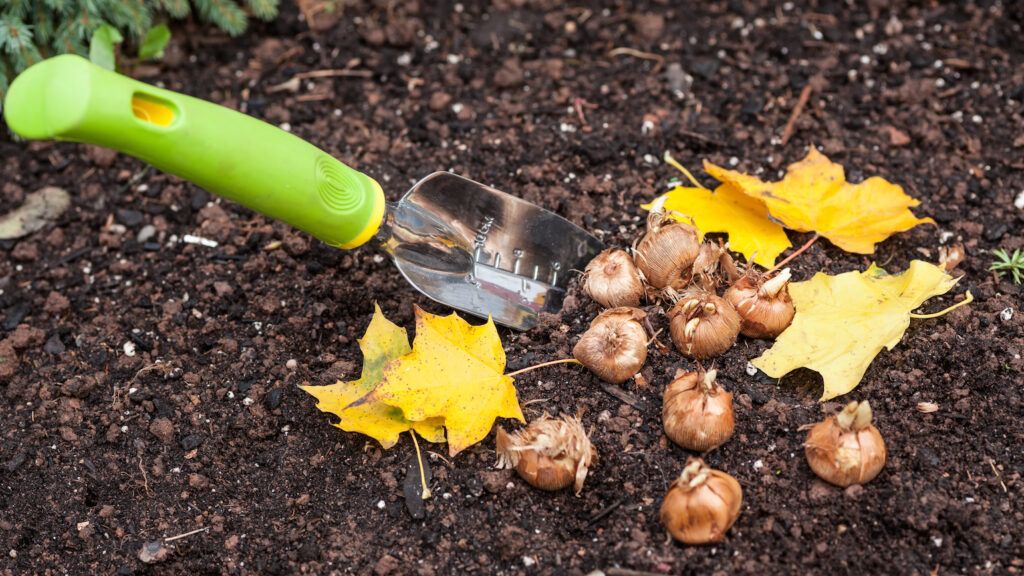Is there any greater act of garden faith than tucking bulbs into the ground just before the freezing cold hardens the earth for winter? Digging, arranging and patting down an array of bulbs has become my launching pad for a positive path through the cold, dark season.
Working through bags of tulips, daffodils, crocuses and one annual experiment—this year, I’m trying dense, colorful ranunculus—I’m aware that the possibilities for failure are numerous. Squirrels could turn their sharp, hungry claws on the juicy bulbs. A mild winter could send the bulbs sprouting before their time. Or the human error factor could come into play, and I could either be too shallow or too deep in my planting.
Like with every garden task, our charge is to persist despite the ever-present possibility that things won’t turn out like we expect them to.
I love the way the poet May Sarton put it: “I long for the bulbs to arrive, for early autumn chores are melancholy, but the planting of the bulbs is the work of hope and always thrilling.”
The work of hope. What an inspiring phrase to capture the effort required, not only to choose, prepare and plant the bulbs, but to set our sights on the bright, warm days that we won’t see for many months.
Now that Daylight Savings Time has ended and the late afternoon sun has moved on to warm another part of the planet, it is the optimal time to practice the “work of hope” each and every day. It is that well-placed effort, after all, that will carry us toward the spring that is waiting to thrill us with its colorful surprises—especially those that are of our own making.






